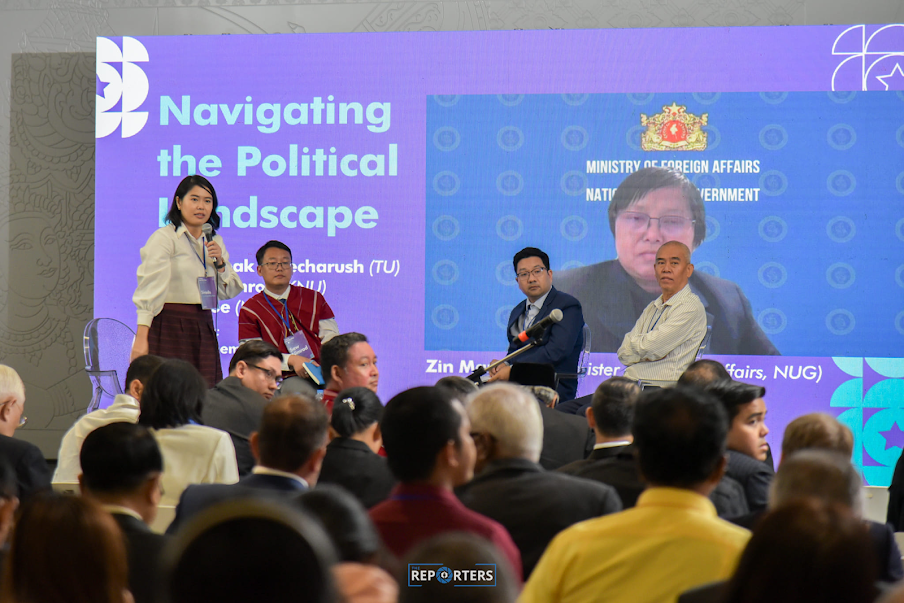Myanmar Spring Chronicle: Thai Parliament’s Discussion on Myanmar Issue Sparks Controversy
Published by MoeMaKa on March 02, 2024
A two-day discussion hosted by the Committee on National Security, Border Affairs, National Strategy, and National Reform of the Thai Parliament has drawn attention to the complexities surrounding Thailand’s stance on the Myanmar crisis. The event, which commenced on March 2nd, saw the participation of key stakeholders, including the Minister of Foreign Affairs of the National Unity Government, the UN Ambassador to Myanmar, and representatives from civil organizations and human rights groups with ties to Myanmar.
While the Thai government refrained from direct involvement in the discussion, the decision to sponsor the event underscores a shift in approach compared to the previous administration. Notably, the plan for the Thai Foreign Minister to deliver an opening speech was thwarted by objections from the Myanmar military regime, citing potential harm to bilateral relations. This move signals a divergence of views between Thailand’s military and civilian leadership regarding the handling of issues related to Myanmar’s border conflicts, refugee influx, and illegal migration.
The prominence of the Move Forward Party (MFP) in the discussion reflects a growing chorus within the Thai parliament advocating for a more proactive approach towards addressing the Myanmar crisis. However, the Thai military’s historically close ties with the Myanmar military council present a significant obstacle to such initiatives.
Meanwhile, the announcement of a pilot program by the Thai government to provide humanitarian aid to refugees affected by the conflict in Myanmar has sparked controversy. Critics, including ethnic armed groups and Myanmar opposition organizations, have denounced the collaboration with the Myanmar Red Cross Association, citing its affiliation with the military council and its role in obstructing humanitarian access to civilians.
Amidst escalating tensions in Myanmar, exacerbated by the military council’s blockade of essential supplies in conflict-affected areas like Rakhine State, questions persist over the ethical implications of engaging with the military regime. The debate underscores the delicate balance between providing much-needed assistance and legitimizing the actions of a regime accused of gross human rights violations.
While the Thai parliament’s discussion signifies a step towards greater engagement on the Myanmar issue, it is unlikely to herald a complete policy shift. The influence of the Thai military and former generals in shaping Thailand’s approach to Myanmar remains significant, posing challenges to efforts aimed at fostering democracy and stability in the region.
As discussions continue, there is a growing imperative for Thai politicians and elected representatives to deepen their understanding of Myanmar’s complexities and work towards facilitating humanitarian aid while upholding democratic principles and human rights standards.

